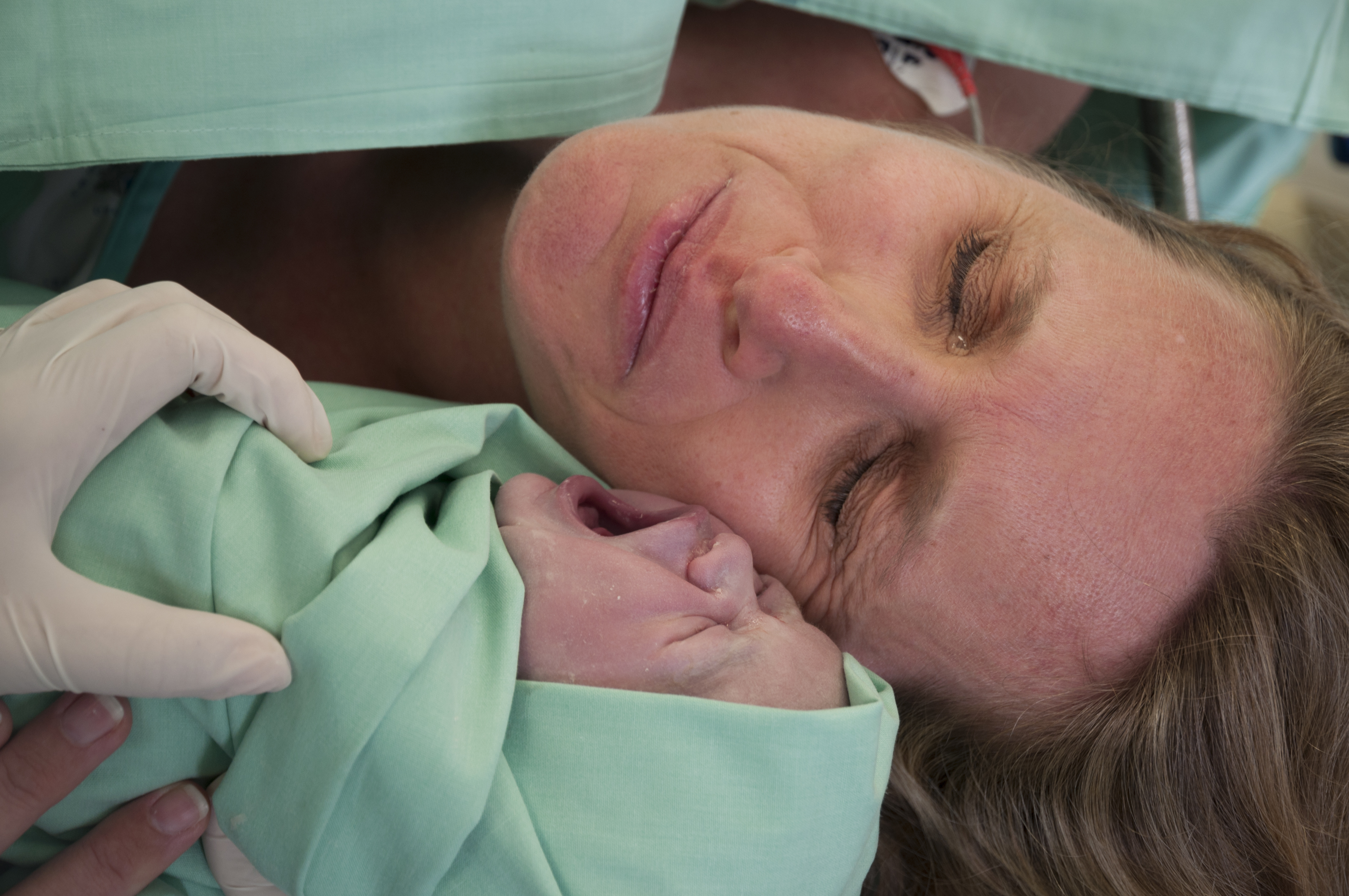Advice for a More Bearable C-Section
By Kellie Doligale
Mothers-to-be are inundated with information and opinions about labor, delivery and postpartum recovery. Many women are now aware of just how many babies are delivered via Cesarean section annually, and we may be faced with alarming words like “unnecessary” and “intervention.” Despite the sometimes-negative press, the procedure is an actual life-saver for countless women and babies every year.
As you prepare for the finale of pregnancy, it’s wise to educate yourself on the possibility of a C-section, regardless of your determination for a non-surgical birth. No matter how cramped your baby is in your belly, he or she can still surprise you down to the final minutes of labor and delivery. A few simple tips can ease your nerves about this common surgery and recovery should you or baby need the extra help:
- Accept the procedure. An unplanned C-section can be upsetting if you envisioned a very different kind of birth, especially a natural one. The reality of an operating room and the people filling it can be unnerving, but it doesn’t have to be an unhappy experience. Though the last 9 months have built up to this day and it seems nothing could possibly matter more, try to keep in mind that your child’s birth is just the starting line in a very long journey. There are plenty of big days to come.
- Advocate for your preferences where possible. You doctor(s) will tell you if there are limitations on their ability to accommodate your preferences. Unless they say otherwise, request that your partner be allowed to have skin-to-skin time with your baby, or see if you can have music to relax you during surgery. Hospitals are increasingly aware of mothers’ unique desires as they welcome a new family member.
- Take your medications as prescribed. After surgery, your doctor will begin a regular rotation of pain relievers. Even a textbook Cesarean is major abdominal surgery, and the days afterward can be miserable without pain management. Feeling “fine” can quickly turn to agony if you neglect the regimen too soon, removing focus from your newborn during those precious early days. Talk to your doctor about how soon you can wean off medication, and listen to your body’s cues.
- Hydrate! It’s crucial to stay extremely well-hydrated in the days after your procedure. Your body is working hard to heal itself and tend to a newborn. Keep water close at hand at all times. Your doctor and nurses will likely stress the significance of getting your bowels back on track, and water is your greatest ally. If you plan to breastfeed, hydration is further necessary for your milk supply.
- Rest well, but don’t avoid movement. The temptation to stay in bed all day can be overwhelming, and you’ll (hopefully) have help with day-to-day tasks as you recover. Savor the assistance while you have it, but get up and walk a few gentle laps as often as you can. Your doctor will likely encourage you to stand up and walk in the hospital, but don’t worry—you’ll have plenty of help for that first wobbly trip to the bathroom. Unless your physician directs otherwise, walking is your best bet for a faster recovery.
- Embrace the scar. As the fresh, bruised, tender incision gives way to a tough, faded etching below your hips, try to look at the line as a sign of your strength as a mother and woman. We often gives scars a negative association of trauma or ugliness, but this can be a hard-earned mark of selflessness. If you’d like to address the cosmetic side after you’re fully healed, don’t be shy to ask your provider for suggestions. They’re knowledgeable about more than medicine.
As with any birth, do your best to be patient as your brave body finds its literal and metaphorical stride again. The presence of a new baby is life-altering on its own, and the details of his or her entrance into the world will become an ever-shrinking part of their (and your) life story. You may find that you ultimately recall a C-section with gratitude for bringing your baby safely into your arms.

